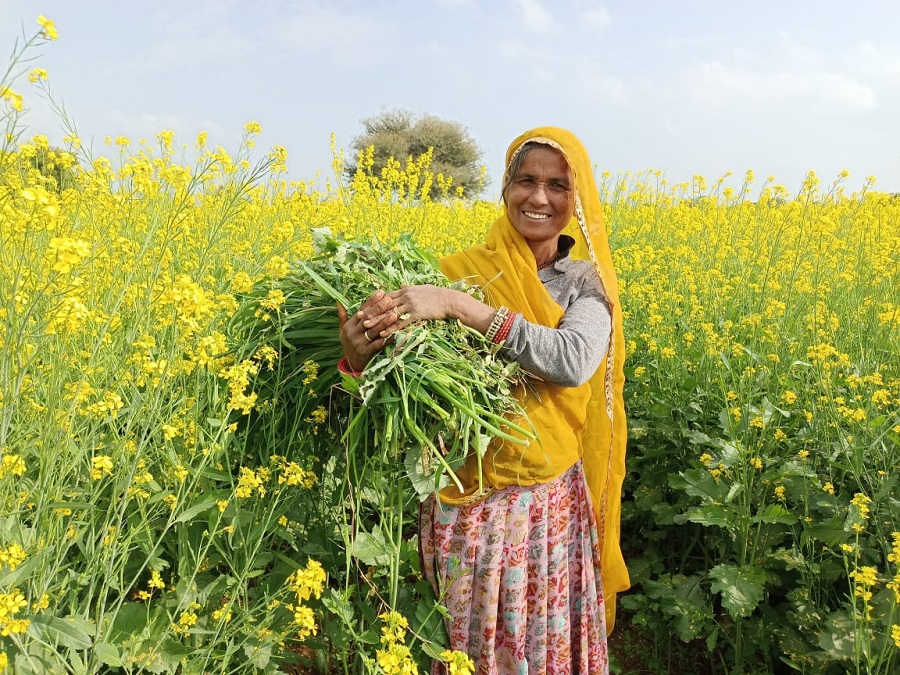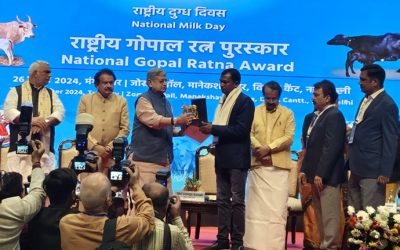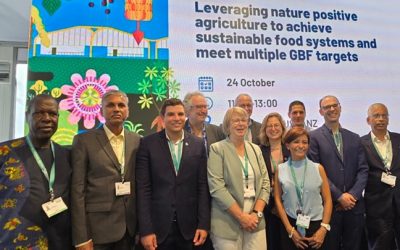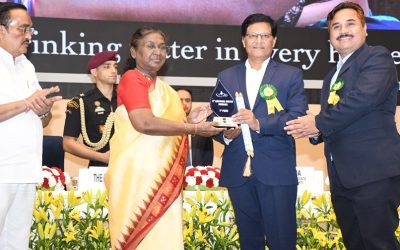About BAIF
In alignment with its Vision and Mission, BAIF Development Research Foundation has adopted the Gandhian approach to rural prosperity with emphasis on Climate Change Mitigation and Resilient and Sustainable Community Livelihoods. With its multidisciplinary team of about 6000 employees and associates, BAIF is implementing major Nature-positive programmes such as Livestock Development, Natural Resources Management, Agri-Horti-Forestry (Wadi) and Agrobiodiversity Conservation for Sustainable Livelihoods and Enriched Environment.
BAIF is implementing these programmes with support from various Corporates under Corporate Social Responsibility (CSR), Philanthropic Organisations and Government Departments. BAIF is also collaborating with Corporates for achieving their Carbon Offsetting / Neutrality Goals. BAIF has been closely associated with several State Government Departments as either an Implementation Partner or as a Knowledge Partner for Rural Development Programmes. The focus of collaboration with International Institutes is for conducting state-of-the-art field-based Applied Research and Technology Transfer.
News Flash
Dr. Bharat Kakade, President & Managing Trustee of BAIF, has been nominated as a BAIF representative on the Technical Committee for “Water Conservation-based Green Credits” constituted by the Ministry of Environment, Forests and Climate Change, Government of India since June 23, 2023. The objective of the Technical Committees and Standing Committee constituted on Green Credits, is to enhance and incentivise positive environmental actions through domestic Voluntary Market mechanism.
Programmes and Impact on Livelihoods and Carbon Offsetting
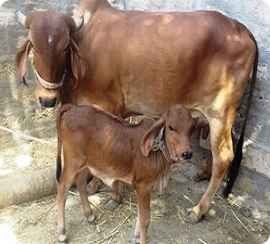
35,19,669 (cum. 72,10,900) families from 96,956 villages in 12 states have improved their livelihood; Methane emission reduced by 17 to 20 %
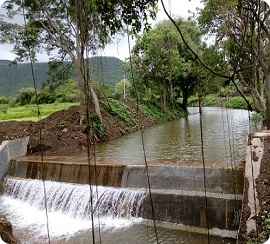
8186 (cum. 372,159) ha; 13,636 (cum. 284,993) families in 115 (cum. 1513) villages in 12 states; Estimated carbon sequestered / offset: 100,000 t. C per year.
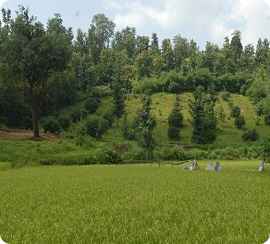
3112 (cum. 89,136) ha; 7779 (cum. 222,840) tribal and poor families; 382 (cum. 6900) villages from 12 states; Carbon sequestered: 2.0 million tons
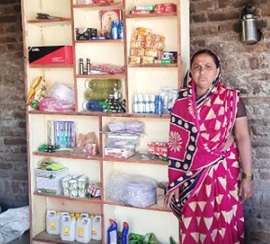
14,636 families from 8 states; 1729 Rural Entrepreneurs
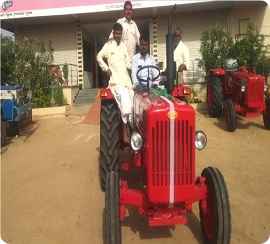
Convergence of mainstream programmes for holistic development of 8074 families from 82 villages of 6 states
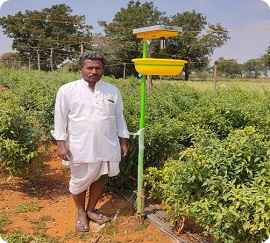
20,176 vulnerable households; 135 villages in 5 States; Climate-Resilient and Smart Agriculture; Climate proofing interventions
5500 tribal farmers from Maharashtra and Gujarat engaged in conservation, seed production and upscaling of worthy landraces through seed saver groups
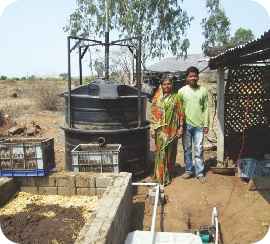
Estimated emission reduction by 2000 biogas units is 8000 t. CO2 eq. per year; Emission reduction potential of fractional solar pumps:11.25 kg CO2 eq. / day / hp.
55576 households have access to safe drinking water, improved nutrition and a cleaner environment through suitable WASH initiatives
3926 SHGs and 11 Federations in 10 states; Changemakers in Agriculture
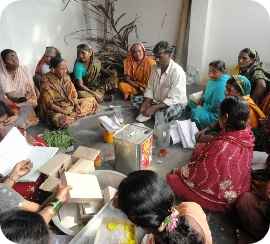
30,645 farmers trained in Livestock Development, 4817 farmers in NRM and 34301 farmers in Farm-based Livelihoods
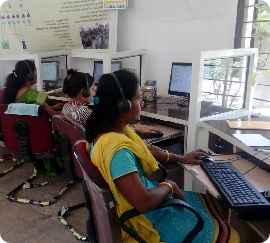
75,000 farmers accessed information; 100 women eDosts; 65 online e-learning modules on LMS platform
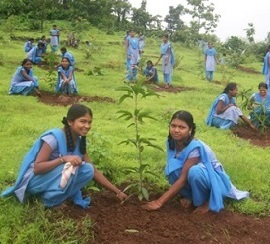
Formal and non-formal educational initiatives in tribal regions; Functional literacy in Bundelkhand region and Smart School Programme for 2000 children in 5 states
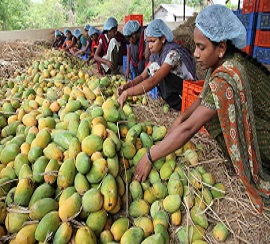
40,000 wadi farmers and 50 producer organisations; 25 NABARD-empanelled organisations; 5 cluster-level FPOs; 69 Agri Business Centres; 2 Cattle Breeders Welfare Associations
Significant Events
National Gopal Ratna Award for BAIF Livestock Technician
BAIF Livestock Technician, Sri. Bhaskar Padhan, is the proud recipient of the prestigious National Gopal Ratna Award for “Best Artificial Insemination Technician” for the year...
BAIF Participation in UN Convention on Biological Diversity
BAIF Development Research Foundation, Pune, an accredited Observer Organization of the United Nations Convention on Biological Diversity (UNCBD), participated in the 16th meeting...
BAIF awarded National Water Award
Oct 22, 2024: Hon. President of India, Smt. Droupadi Murmu conferred the 5th National Water Awards 2023 for “Best Civil Society” on BAIF Development Research Foundation, Pune...
Updates
For Tenders click here
Annual Accounts of Foreign Contribution click here
BAIF Vision 2030
We aim at bringing positive change in the lives of 10 million rural families belonging to economically weaker sections of the society, from present level of 4.0 million families, through resilient and sustainable means of livelihoods, improved quality of life, while contributing to the national and global sustainable development goals and overall ecosystem well-being.
The strategy for achieving the goals will be empowerment and skilling of the local people, building social capital and collaborations with national and international science and technology institutions.
1. Climate Smart and Sustainable Natural Resource Management
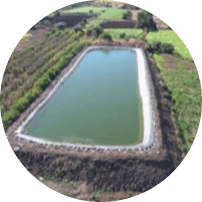
Land degradation neutrality, Integrated ecosystem services, Region-specific approaches to manage the resources, Renewable and clean energy, Climate change mitigation, Application of digital technology in field programmes
2. Climate Smart Agriculture for Rural Livelihoods
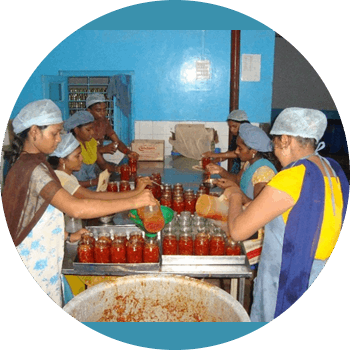
Improvement in farm returns, Ensure food and nutritional security of the resource poor families, Adoption of agro ecological approaches, Promotion of agro-biodiversity, Promotion of value chains around the crops
3.Genomic Selection-based Climate Resilient Livestock Management
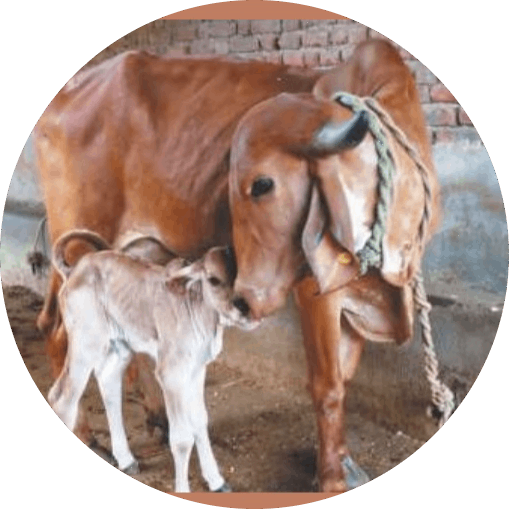
Region-specific genomic selection and breeding, Promotion of indigenous breeds, Promotion of mixed farming systems, Precision and smart dairy farms, Stress -resistant high yielding forage crops, Climate smart practices and pastoral systems, Market linkages
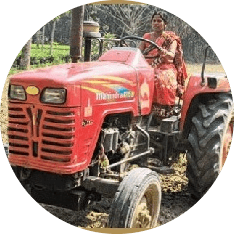
Women leadership and entrepreneurship, Drudgery reduction in agricultural operations through mechanization, Women reproductive health and hygiene and child care
5. Water, Sanitation and Health
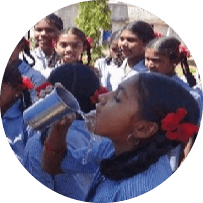
Personal and community health and hygiene, Access to clean drinking water, Access to sanitation facilities, Strengthening traditional health practices in remote tribal areas, Preventive community health care
6. Rural Non-Farm Sector Livelihoods
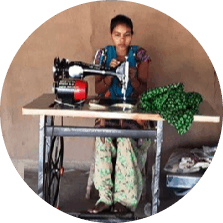
Skilling youth in non-farm vocations, Promoting rural enterprises, Promoting digital application
7. Education
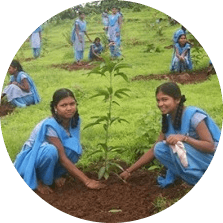
Functional literacy, especially of women, School infrastructure and facilities in remote areas, Skilling the students in rural vocations and farming



